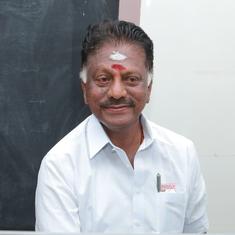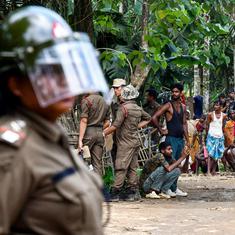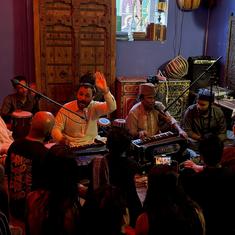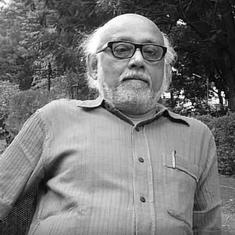What shall I compare thee to?
Tamil film lyricists have had the most imaginative responses to this question, particularly when it comes to describing a woman in a love song. Going by the sheer range of analogies, a woman could be anything between a delicate rose and a mechanical beauty. It gets better: the season of spring, a ripe mango, a Nokia cellphone and the IR8 variety of rice.
Women are fragile beings, like children, as per Kaniya Kaniya Mazhalil Pesum Kanmani from Mannadhi Mannan (1960). She represents the ideal in every aspect of life as Kalangalil Aval Vasantham from Paava Mannippu (1961). She is spring among the seasons, a painting among the arts, a jasmine among the flowers and a mango among the fruits, sings Rajan (Gemini Ganesan).
Women have often been chopped up into their desirable body parts and traits. “Go slow, oh tiny-waisted beauty,” sings Mani (MG Ramachandran) to Susheela (Jayalalithaa) in Mella Po from Kavalkaaran (1968). Mani compares Susheela’s laugh to a red mango fruit, the words that come out of her mouth to the arils of a pomegranate and her gait to the swirl inside a pot of milk.
The sexual innuendo in some of the lyrics has not gone unnoticed. Yelandha Pazham from Panama Pasama (1968) created a furore when it was released due to its comparison between a woman and a ber fruit.
Different varieties of fruit, especially the mango, seems to be a recurring obsession for lyric writers. In Mambazham Mambazham from Pokkiri (2007), Snehan does not attempt to hide his intentions behind insinuation. “You are mango, yes a mango, a Mulgoba mango, Salem’s mango,” sings Tamizh (Vijay) to Shruthi (Asin). “Yes, I’m a mango...” she replies with equal fervour.
Up until the 1980s, for the most part, lyricists maintained a sense of propriety when describing women. Metaphors about the moon, the flowers and the arts were popular. She is a play of the nine rasas, sang Murugan (MG Ramachandran) in Aval Oru Navarasa Nadagam in Ulagam Sutrum Valiban (1973) before going on to compare her to poetry, dance and the beauty of lamps.
Senthazham Poovil from Mullum Malarum (1978) likens a woman to nature itself: “The fragrance of a flower reminds me of a girl...the twists and turns in my path remind me of her hair.”
What else can you call a woman when you run out ways to compare her to flora and fauna? Your cheeks are like sandalwood bowls, declares the song Rendu Kannam Sandhana Kinnam from Sivappumalli (1981). Inji Iduppazhagi (ginger-waisted beauty), sings Kamal Haasan in Thevar Magan (1992). Vellarika Pinju Vellarika from Kadhal Kottai (1996) is directed at a woman who gives the man the cold shoulder. His revenge: he calls her a slice of cucumber.
The woman gets her back in Kathirikka Kathirikka from K Balachander’s Duet (1994), in which Anjali (Meenakshi Sheshadri) gleefully compares the portly Guna (Prabhu) to a large brinjal.
The song that wins the prize for the most number of vegetable similes is Molachu Moonu from Velayudham (2011). “Your fingers are like ladyfinger, your ears are like flat beans,” sings Velu (Vijay) to Vaidehi (Hansika Motwani) and Bharathi (Genelia D’Souza). “Your nose is like a chili and your nose pin is like a mustard seed. Are you a vegetable garden?”
If a woman is like a fruit or a vegetable, it stands to reason that she is edible. In Thinnathe Ennai Thinnate from Parthen Rasithen (2000), Shankar (Prashanth) begs Bhanu (Simran) not to devour him with her eyes and her body. He makes his fears explicit: he stands inside a cauldron as he sings.
The quest to find new ways to describe lovers can be never-ending. In Un Samayal Arayil from Dhill (2001), Kanagavel (Vikram) and Asha (Laila Mehdin) go through a list of things that can be used to describe each other and their position in the relationship. “In your kitchen, am I salt or sugar?” he asks her. “In your study, am I your eyes or the book?” she retorts. The discussion gets very serious: “If you are the finger, am I the ring on it or your nails? If you are sleep, am I your lap or a pillow?”
As India gets technologically advanced, lyricists have found new ways to describe women. In Telephone Manipol from Indian (1996), written by Vairamuthu, Chandra (Kamal Haasan) compares the laughter of his lover Aishwarya (Manisha Koirala) to a telephone’s ring. He also wonders if she is Elizabeth Taylor’s daughter. Or might she be Zakir Hussain’s tabla?
Songs from Shankar’s Anniyan (2005) describe a woman variously as a Nokia cellphone, a cappucino and “Apple laptop girl”. The same woman’s eyes are compared to Ayira, a variety of fish and her teeth are like the IR8 rice variety, which was instrumental in India’s fight against famine in 1967.
A lazy way out is to compare female characters to movie celebrities, particularly from Hollywood. In Nee Marilyn Monroe from Azhagiya Tamizh Magan (2007), Gurumoorthy (Vijay) asks Namitha’s character if she is a clone of Marilyn Monroe or a scan of Jennifer Lopez. In the spy thriller Spyder, Shiva (Mahesh Babu) randomly breaks into a song and lovingly calls Charlie “Ciciliya”. In Lingaa (2014) Raja Lingeshwaran (Rajinikanth) addresses Lakshmi (Anushka Shetty) as “Mona Gasolina”. He means it as a compliment, presumably.
Since Shankar’s Enthiran is about an inventor and the humanoid robot that he creates in his likeness, it follows that the heroine (Aishwarya Rai) will be reduced to a machine too. Kadal Anukkal wonders about the atoms of love in Sana (Rai) and about the neutrons and electrons in her blue eyes. Enthiran’s sequel, 2.0 has a song dedicated to the beauty of the robotic world, Enthira Logathu Sundariye. The heroine (Amy Jackson) is offered new and clean data and battery life and is promised to be loved from zero to infinity.










